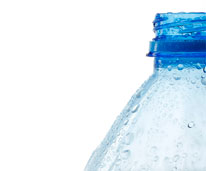Make Wise Choices for Healthful Snacking
It’s 3 pm. You’re hungry. And let’s face it, dinner seems like
it’s a year away. You think twice before grabbing a snack because you’re
trying hard to lose weight or you simply don’t want to “ruin your
appetite” before dinner. Eventually hunger wins and you reach for some
cookies or chips. Before you know it, you’ve devoured the entire box or
bag!
Well it looks like you’re not alone. American adults are snacking more than ever and based on the latest statistics I’ve read,
snacking accounts for almost 1/4 of our daily calorie intake.
And while it’s true that traditional snacks are usually high in salt,
fat and sugar, healthful snacking is possible. That’s why I’m so excited
to tell you about a new product we just introduced at our annual Global
Conference in Las Vegas, Nevada. Coming soon, we will have a brand new
addition to our Cinch® product line – Cinch® Snack Crisps. Baked to
perfection, these crunchy, savory snack chips give a whole new meaning
to healthy snacking! They come in two great flavors – sea salt and
barbecue. They have 100 calories per serving, 7 grams of hunger-fighting
protein, 2 grams of fiber and contain no trans fats. They’re also
gluten free and have a
low glycemic index. Finally, a healthy savory-type snack that not only tastes fabulous but is good for you and your entire family!
So remember to choose your snacks wisely. Think of them as mini-meals
and fit them in to a healthy eating plan without over doing it on your
daily calorie intake. Remember to snack only when you feel hungry not
just because you’re bored or stressed. Watch your portion sizes. Avoid
eating snacks directly from the big box or bag. Have a single serving
snack (like our Cinch® Snack Crisps!) so you have more control over your
calories. Another great strategy is to think ahead. Keep
a variety of healthful snacks
around at all times, that way when you do get hungry you won’t be
tempted by the high salt, high fat, high sugar and snacks that may be
lurking nearby.
Be Well!
View other posts by Dr. Jamie >
View Dr. Jamie’s profile >











